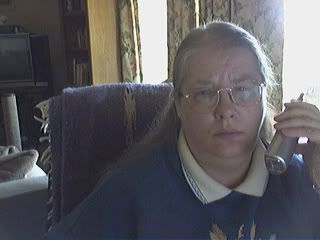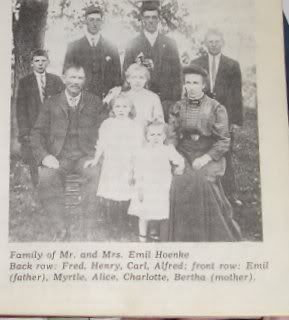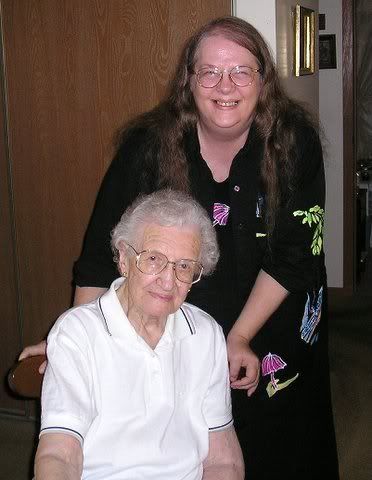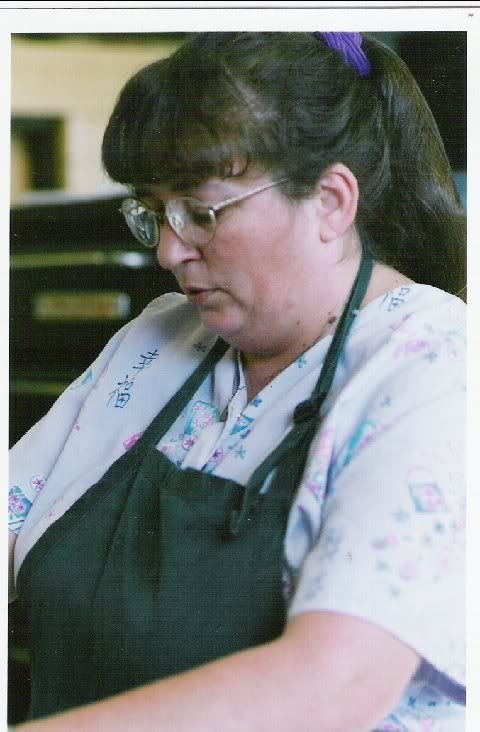PSY7421 - u07d02 -Problem Solving and Creativity
In applying the cycle to a problem, I might identify the problem as remembering how to be a student, write a paper, and contacting the professor to understand if I am still in the course.In definition of the problem, I would think remembering how to be a student, is the same as saying for some time, I seem to have been not actively involved with the cognitive course. The competition to have been the best might have caused us to fall back to our all or none thinking. When we think of writing a paper, we have been seeing only small steps, which has scared us to pieces. We have been overwhelmed with thoughts such as, “Get the book, Open the book, Figure out which page. What is the chapter? What is the question?” I have lost contact with the courseroom and I am out of touch with what is supposed to be happening and when the professor handed out midterm grades, I did not receive one. Prior to not being here, I remember there being a couple of weeks where we had been behind, so we figure that is why the professor didn’t comment to us. We felt invisible and lost. This is our fault. We meshed a space of our past with the present. We need to assert our presence, but hadn’t.
In constructing a strategy for problem solving, we note our strategy has been to dissociate. Now, we need to figure out where we are. We have to associate with what needs to be done. In looking around it seems to be week 7. We last left off on the back part of Week 4. Something about memory. Then there was just Chapter 5 and that week we only had to do a journal entry. I think the week before we were not able to do properly the Coglab, because of the program, and/or our computer. We handed in something else; however, there had been no response. We should have known wheterh or not this was ok on our own. Next came something on knowledge. That sounds also like something I would like to know. We would have a lab then on Week 6 and something. Let’s see. Ok. Language, I see. Then we are up to this week we are to finish today. Problem Solving and Creativity. So that means we owe another journal entry. Ok, got it.
To tackle this problem without being overwhelmed, we are going to need addressing each assignment. However, we will work on just two assignments a day. The other course is fairly caught up. We can go back to that course after we are caught up with this course. We need not to be so scared. We can do this. Calm the parts that are wavering. To tackle this problem, I need to self-assure us that it will be ok. We could schedule a call to the professor on Monday. That would be a good idea. Make it our goal to post both of this week’s assignments by midnight. Ok, Good. No, better wait to find if we’re still in the course. Ok, we can still use the format process that has been working in the other course. Work on each question one at a time. And, use the blog to check-in, when it gets difficult. Ok, we’re ready for the next step.
In organizing information about the problem, we need to see it as a process. First, organize the load. We now have the assignments listed on one Word document and away from what feels like a threatening courseroom, then copy/paste over one question at a time to this document, respond to the question at hand, and focus on the work and not the thoughts and emotions of the different parts. If someone wants the floor it has to be constructive toward the studenting. We all have to focus, because otherwise, we will detract from simply as our friend states, doing the work.
Allocation of resources means having us all focus our attention. We have removed the extraneous obstacles such as other projects. We have situated ourselves comfortably. We know the course is challenging, but we are smart enough for it. Our supporters have been very good at helping re-direct us back to “our” work of being a student and writing papers. We are focused in the present and as we think through this problem, we are working to resolve it and we are resolving the paper itself by writing. It is helping us to write the work in outline form. Keep this order and maintain both assignments from the same chapter at the same time. One effort is psychologically easier than two papers.
As we monitor the problem, we are only going to focus on this day. It is now about 11:15 am on Saturday. C’mon, you can do better. The date is November 19, 2005. One month of this semester left. Wow! We would like this week’s assignments finished (with comments) within the next ten to twelve hours. We should set the timer to make sure we are maintaining the task. To do the work, we need to remain in the present. Our typing fingers need to stay connected to whichever paper/assignment is before us. Within this next week, we have six days of time off from work. This means, we should focus on catching up two papers a day and finish by next weekends end. AND, then we need to work ahead to complete the final paper as well. We need to handle our obsessive compulsive needs. Our work does not have to be the best; it just has to be done. Most likely our work won’t look exactly like the other students. It will be just different. That is ok. We are not as crazy as we sometimes feel. It will be ok. We can be a successful. It is ok. So far, it seems to be working. We are progressing, smile. We can do this.
Ok, next, we need to evaluate problem solving. How is the negativity level. Seems everything is still good. Music is helping. Editing our work helps. It makes it easier for the slower parts to keep up. I am finding that my minds don’t work as might a singleton’s mind. Doesn’t mean we can’t complete the same assignments as he or she. Just time orientation is a little different for us. We still need to find out if our work can be submitted. Are we still a student of this course. What rules may we have violated? Maybe we’ll make that phone call to the Professor, the next problem we solve. Our email messages have had no response and our lack of home phone, will be taken care of at work on Monday. It will give us time to figure out our commitment toward progress.
The advantages of becoming an expert-problem solver, is for one, I would be unlimited in the number of things I could accomplish, particularly in school. I would be less fearful of doing things that were difficult for us. With this problem in particular, I have through the process almost completed the first half of the paper. This wasn’t something I was able to do prior to having attempted it. I have learned another system, and if we are nothing else, we’re a systems person. It has helped lessen the stress that I was feeling.
The disadvantages of becoming an expert-problem solver in this situation is that I will have to forget the stages prior of fumbling. Of course, this would be a silly disadvantage. There is no disadvantage of a good working system. After a while and an ability to remember, I would be able to walk more quickly through the steps and utilize the process for most problems. It is time consuming, but so are the problems I deal with. One will help the other.
Sternberg (2003, p. 378) writes that selective-encoding insights are the distinction between relevancy and irrelevancy. It appears to act as the filter or process of cleansing the mind from superfluous variables. An example of this might be the difference in me listening to all the loose chatter within our minds preoccupied in anything other than difficult thinking, or me listening to only the self-conversations that continue only in response to the course question before me. The strength of selective insight might be that I find meaningfulness in responding to an immediate goal and in the process learning something of value. This would correspond to my higher-reaching goal of completing the course, and eventually my formal education. Anything I learn now during the third semester will help me to develop better skills and progress the semesters to follow. I need to remain focused and hold in memory processes of continuation.
The weakness of selective encoding is that in not looking or maintaining all the variables, I risk loosing the one slight nuance or chance that could have helped me to better understand my main concern, or better yet the strength of its hold on me. This morning while trying to calm down enough to open the textbook, my eyes happened to fall and stop their gaze in front of me on a cup of color pencils I have waiting to use for my new brain anatomy book. I thought, odd … weeks have gone by and I hadn’t really completed more than the first page, or thought for more than an instant how pretty and inviting they were. But, when I had purchased the book, I had intended to use it as a motivator to younger parts in the system, specifically for this course. So, they were allowed to color, which gave us a means of better focusing on the work and the work of the final paper, we are looking forward to starting. The chapter has pointed out that insight sometimes occurs from stepping back from the creative process or processing. One more consideration is that I find when I follow too closely a set path of discovery; I sometimes overwhelm myself through my ability to obsess. It appears I need the balance of seemingly non-productive moments such as recognizing the nice breeze coming from the open balcony, or that my late lunch is actually very fulfilling and necessary in order of resting my mind for greater tasks and tests.
Selective-comparison insight is being able to align side-by-side old information with new information. The first thought that comes to mind here as strength, is that we sometimes in our thinking processes have done what we consider imposing one set of circumstance with another. Through abuse, I have found that unwelcome images or scenarios sometimes seep from the past to the present. This kind of remembrance has been called flashbacks, body memories, or so on. In general, these images are still intrusive. The value of old information/new information coupling, and in particular psychiatry, one can learn to dismiss the negative emotion from an old incident, by double imposing it with a new image. So, in the first instance, I might feel troubled by the presence of my abusive grandfather. The second instance, I feel relief by the image of a safe person next to the former image. The therapist invariably knows how to deal with the conflicting abuser and we in return feel the stronger emotions of caring affiliated with the secure helper, which we had missed prior in our childhood. A part of then feels healed.
A weakness of selective comparison is that sometimes things work in arrear. This morning, I was talking in an instant message with a good friend. The friend is male I’ve known as one of my best friends for two years, and although I’ve held another in an intimate relationship for quite a bit longer, I felt threatened when another female was introduced to my newer friend’s life. I felt assured that my friend would then have no need of his relationship to me. When he told me that was not the case, I trusted him, but by that time I was in tears. Apparently, what had happened is that I double imposed a picture of abandonment from my Grandfather onto my friend, placing him in a precarious an awkward position. The current situation did not carry the strength to justify that amount of emotion. The abandonment issue runs very deep and has been in process for quite some time. In essence, I had kidnapped my friend and attempted to cross mental barriers in effort to reach safer grounds or context. Selective comparison here turned out to be something I would have rather not conscientiously put a friend through.
Selective-combination insight is like finding all the good apples and secret ingredient from which an inspired new family heirloom apple pie be developed. Or, in essence all the pieces of a mysterious life jigsaw puzzle come together coincidently. I have felt this way often in the better progresses of a new school paper that has just been completed somehow just happens. It is as if everything I have learned as a writer of other papers and projects leads me to find a newer product that has succeeded all other past attempts in pleasing and appeasing my soul and spirit.
A weakness to selective combination insight would be in finding that a novel ideal is really kind of corrupt. For the most part, life just runs along and as if holding a basket and collecting berries from one source or another. In the process you find yourself gaining strength and courage. That is the kind of feeling that could lead up to a pleasant afternoon of work on a day that has included a Thanksgiving Day Banquet. Everything seems to be tidying up nicely and the weekend is known to be just slim hour away. Then something silly happens like a State inspector calls your office claiming the world will come to an end if you don’t get that report to her office immediately. And, while one pauses in shock and dismay, the evil pieces of genius fall into place. You know that project is not in immanent danger because it is only a week later, and it’s actually due just within a month. This falls in alignment with the new sense of assertiveness discovered in having a successful work week, and then lastly, you remember the boss has left work for the night. So, in all audacity, you suddenly find yourself saying, “I’ll have that to you first thing Monday morning!” The State inspector gasps. And the part that will have to be responsible later falls to the ground. Yes, I could see this being a weakness. I need to work on my character.
The helpfulness of incubation in problem solving, given the time necessary for inadvertent processing might include that you approach the problem from a different angle. While we have gone through our difficulty in not applying ourselves properly to coursework, which is our current greatest life problem, we have found stepping away from the work has given us a much different approach in handling the assignment, now later. I still do not know whether or not the professor considers me a student in his course, but if he does, and if he accepts the newfound sense of relevancy I feel in responding, I will consider myself fortuned.
Several, areas of study have shown where insight has provided substance from which to build new ideas. In one study that could be considered a selective-encoding insight, a researcher, Adams, (2005) looked at the nature of 9-12 year old children’s dreams that were divine (Christian, secular, and Muslim) to uncover their symbolism as occurring in ancient times. They found when the children themselves attached a meaning to the dreams, instead of directing attention exclusively to the symbolic measures, strong messages of the child were more clearly shown.
Another case of insight is documented through the work of psychologist, Sigmund Koch. His initial love was poetry and literature. He later shifted to philosophy and psychology and may have found selective comparative insight by marrying these interests in the study of the arts and aesthetics. His beneficiaries state that “considerations and illustrations pertaining to aesthetic sensibilities and creative work were woven into the fabric of these papers [states of mind], although the papers were not centered on aesthetic perception and sensibilities of creative work per se” (Franklin, 2001). He went on to completing research on eminent creative people in fiction, poetry, music, architecture, and dance.
Lastly, in an interview of Michael Wertheimer, the son of Gestalt’s Max Wertheimer, Michael discussed how different elements came together to form Gestalt which appears as a selective-combination insight (Sharps & Wertheimer, 2000). The authors’ approach the thought; theories are not created in a vacuum. They looked at the Wundt’s work in looking at subjectivity and investigation, and stated Wundt was aware “that the whole is different from the sum of its parts” (2000). This seemed to tie into Gestalt work on creative synthesis (2000). They also took in the work of another psychologist, Ehrenfels, who added in 1890 qualities of “squareness” and “diamondness” as whole entities to describe what had been elementary lines and angles.
Finally, in reviewing this paper, I have decided to hand it in, particularly since I have received no notice of me being withdrawn from the course. But, if you might be the professor, please let me know where I stand.
References
Adams, K. (2005, September). Voices in my dream: Children’s interpretation of Auditory messages in divine dreams [Electronic version]. Dreaming, 15(3), 195-204.
Franklin, M. B. (2002, May). The artist speaks: Sigmund Koch on aesthetics and creative work [Electronic version]. American Psychologist, 56(5), 445-4652.
Sharps, M. J. & Wertheimer, M. (2000, December). Gestalt perspectives on cognitive science and on experimental psychology [Electronic version]. Review of General Psychology, 4(4), 315-336.
Sternberg, R. J. (2003), Cognitive psychology [Third ed.]. NY: Thomas Wadsworth.
The areas in which I will compare and contrast concerning creativity are: “Its how much you produce,” “It’s what you know,” “It’s who you are,” “It’s where you are” and “All of the above” (Sternberg, 2003, pp. 396-397).
















